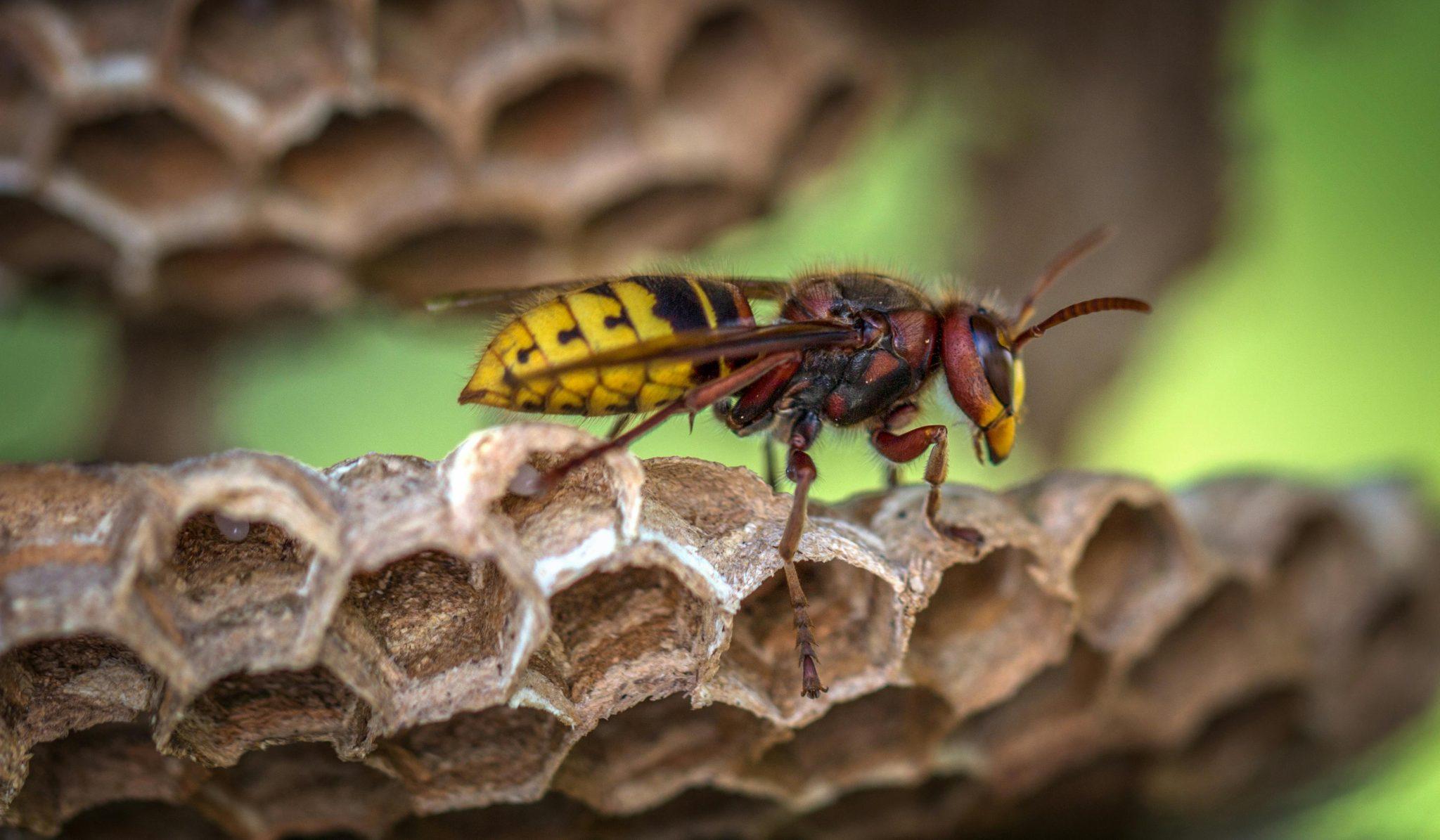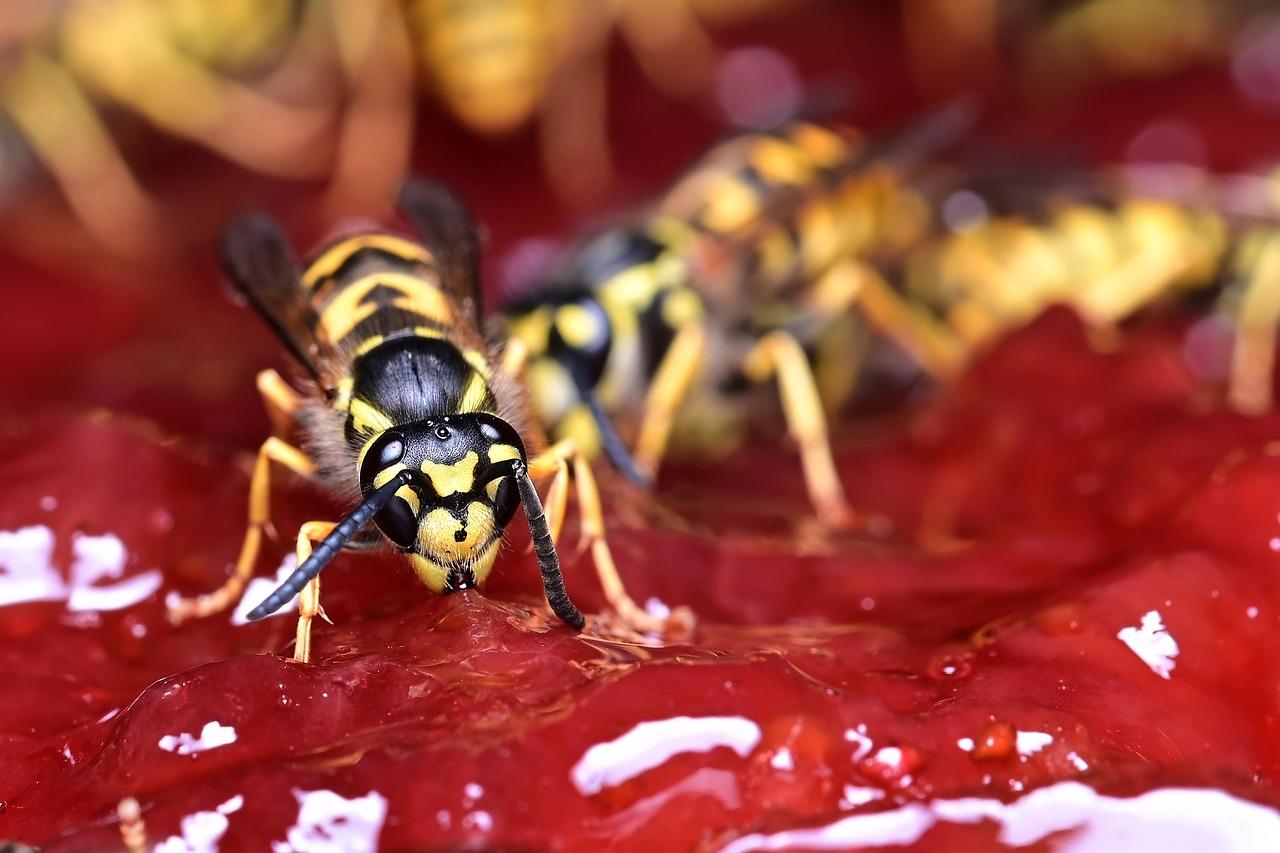What Smells Do Wasps Hate?
Wasps really loathe a strong, herbaceous or citrusy odour, such as lavender, citronella, eucalyptus or sharp kitchen staples like vinegar and cinnamon.
As experts in pest control for wasps, at Pest Defence, we know how frustrating and unnerving the presence of wasps can be when they get too close for comfort at your home or business.
To help you ward them off, we’ve got some quick, practical ways to harness natural scent deterrents during summer months.
Why do scent deterrents work on wasps?
The reason scents work as a deterrent on wasps is because they use their sense of smell to hunt out food or find nesting sites. Anything that is too pungent, volatile or overwhelming for their olfactory receptors is likely to mask pheromone trails and put them off.
With that in mind, there are some natural insect deterrents out there that you can use if you just need to keep wasps away from your outdoor seating areas. An eco-friendly scent barrier is low-cost and safe for children and pets, but importantly, it doesn’t damage pollinators when used correctly.

Which scents are the best deterrents for wasps?
In the garden, you can use…
- Lavender either as a border plant in pots or as dry flowers in a mesh bag near seating areas.
- Eucalyptus can be grown in containers or with pruned branches used as decorative stakes.
- Marigold is a great companion plant for patios, with blooms that repel wasps.
- Mint and specifically peppermint, which is the strongest, should be crushed or rubbed around tables and chairs.
- Citronella can be found in candles or in living plants, utilising citronella oil to deter wasps.
In the kitchen, you can use…
- Citrus scents from lemon and orange peels can be used in water or to wipe surfaces.
- Cinnamon should be ground and sprinkled on windowsills or sticks added to your table centrepiece.
- Chilli peppers contain capsaicin vapour, so slice some peppers on a plate and leave them near doors or windows.
- Rosemary can be dried and burned into sprigs, or you can simply let a plant grow in a windowsill pot.
- Vinegar – specifically white vinegar – should be used on a shallow dish for a punchy way to put wasps off.
For more help and advice on dealing with wasps and hornets, see our resource centre.
Which smells are wasps attracted to?
Now you know which smells put wasps off, it’s probably a good idea to find out what attracts them. This will help you determine if you can further deter them from approaching your space. Wasps love:
- Sweet fragrances such as ripe fruit, sugary drinks and floral perfumes
- Protein odours, such as barbecued meat, pet food and compost bins
- Fermenting liquids, such as beer, cider and fallen apples
- Perfumed toiletries, such as sun cream

Basically, they love all the things we love in summer! So the best way to keep them at bay is to ensure you always clear up after yourself and your guests. Keep bins closed and pet food indoors wherever possible.
How to keep wasps away when sitting outside
Here are five ways to keep wasps away when sitting outside:
- Deploy scented candles and essential oils (see the scents we mentioned earlier)
- Keep food and drinks covered, using lids and straws wherever possible
- Move your bins and compost pile away from any seating area
- Hang a decoy nest in early spring if you want to discourage a new colony from starting
- Time any al fresco dining at home for after dusk, when wasp activity drops off dramatically
When is it time to call a professional?
If you’ve spotted a wasp nest in your loft, wall cavity or garden structure, it’s time to call in the professionals. You’ll see multiple wasps entering and exiting every day, as well as blighting your enjoyment of your outdoor space.
At Pest Defence, we can provide wasp nest removal if your attempts to use scents have failed. Remember that wasp stings can trigger allergic reactions, so it’s important that you don’t attempt to remove a wasp nest yourself. Our team has the equipment, PPE and experience to handle safe, rapid removal for you.
Whether you’re a homeowner or a restaurant owner in London or Essex, contact us today and our BPCA-accredited team will be happy to help with your wasp problem.
